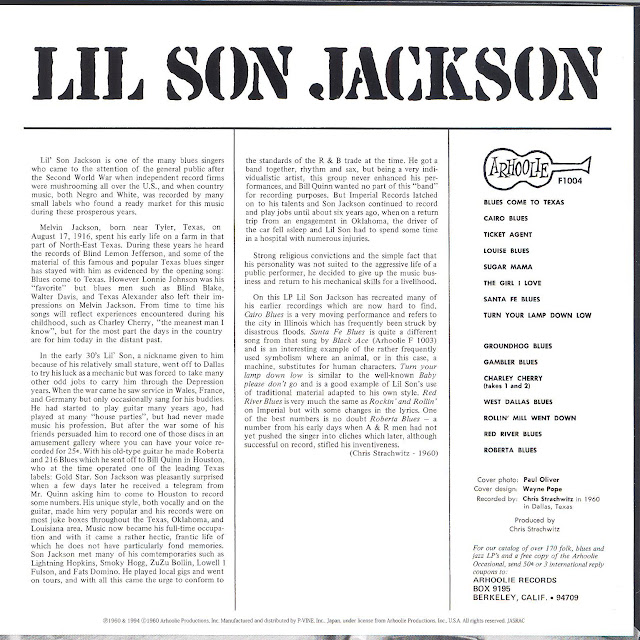Size: 150 MB
Bitrate: 256
mp3
Found from my Private Collection
Source: Japan 24-Bit Remaster
As the period of the Blues Revival began to fade, notably with the emergence of British and contemporary Folk artists who drew their influences from the treasures of the legendary Bluesmen, it was clear that the Blues was about to experience new adventures. Today we are going to talk about an important and pioneering figure of the Hill Country Blues, with Mr. Mississippi Fred McDowell. To first tell you a few words about this musical style, Hill Country Blues originated in northern Mississippi, appeared and defined in the 60s as a mix of Delta Blues, Country and West African sounds. From its less conventional and anesthetic form, Hill Country Blues exudes a certain purity through an energetic groove. Going unnoticed at first, because often too much reserved for something local and rural, from the far north of Mississippi, this musical style became something traditional, before it was an influence on some artists of the 90's/2000's when the Garage Rock Revival period appeared. Fred McDowell was obviously not the only local artist to define this new musical style, but he became the emblematic figure as early as 1964 based on the history and legacy he left behind.
Born in 1906 in Tennessee, he has been known for his retrospective fame, based on the fact that he was the pioneer of the new Blues movement and also thanks to his masterpiece Do Not Play No Rock 'n' Roll released in 1969. Unfortunately he didn't really enjoy his recognition, because McDowell left us in 1972 because of cancer. This man will forever remain a blues legend who is categorized as a historical artist who never landed in the homes of popular listeners, a job reserved for connoisseurs and historians. While losing his parents at a very young age, McDowell first gave up farming, the family business, for the food industry. Music was originally a passion that he exercised on weekends or evenings to make a few extra pennies. He also learned to play the guitar by himself. It was not until the Blues Revival at the end of the 50s that he had the chance to be recorded in the studio, he was then over 40 years old, which is not really a surprise for the bluesmen of that time. Thanks to the Blues Revival, Fred McDowell managed to become a "popular" artist in the reduced folkloric sphere. He took part in a few American compilations and tours/festivals. The exact origin of Hill Country Blues is difficult to put in context for 2 reasons. The first one is that Hill Country Blues had to be built locally over several years, 1964 remains the symbolic date of Fred McDowell's first album. And the second reason is that legend has it that Fred McDowell never really changed his way of doing blues, even though he certainly made it evolve, he was capable of great musical openness and remarkable versatility.
 |
| open picture in a new window for 100% size |
But like everything else, there have to be some milestones in the history of Hill Country Blues, which brings us to 1964 and the album which is ironically called Delta Blues. In fact, Hill Country Blues was so familiar to Delta Blues that it is sometimes difficult to put the right label on it. The complete album is nowadays almost impossible to find on any platform, so you have to search the tracks one by one, because this one is one of the pearls lost by history (you will find most of them on the You Gotta Me compilation). Released by the label Arhoolie Records, created in 1960 in the middle of the Blues/folk revival period, which included mostly roots artists, Delta Blues are composed of mostly traditional songs, arranged and reworked by McDowell. McDowell, who also had alaise in both cases, alternates between electric and acoustic, with his famous slide guitar and his multiple techniques. His deep and percussive voice emanates all the rurality from which he comes from. There is this simple, sincere side which is articulated on a frantic instrumental rhythm that complements perfectly his singing. What I also love about this kind of artist and dusty record is precisely this rustic and authentic effect that offers an original flavor that is difficult to find today "because of" the technological and material advances of our contemporary production. [DoubleZ]
Track listing
01. Write Me a Few Lines
02. Louise
03. I Heard Somebody Call
04. 61 Highway
05. Mama Don't Allow Me
06. Kokomo Blues
07. Fred's Worried Life Blues
08. You Gonna Be Sorry
09. Shake 'Em on Down
10. My Trouble Blues
11. Black Minnie
12. That's Alright
13. When I Lay My Burden Down
14. Fred's Rambling Blues [bonus track]
15. Don't Look for Me on a Sunday [bonus track]
16. Good Morning Little School Girl [bonus track]
17. Little Girl, Little Girl, How Old Are You [bonus track]
18. Drop Down Mama [bonus track]
19. Early This Morning [bonus track]
20. Keep Your Lamp Trimmed and Burning [bonus track]
21. Get Right Church [bonus track]
22. I'm Going Over the Hill [bonus track]
23. Amazing Grace [bonus track]
1. Fred
or
2. Fred
or
3. Fred





